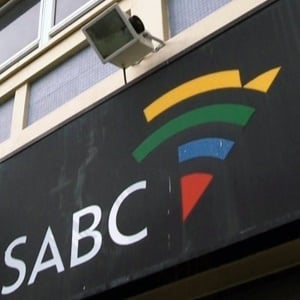Language usage, news coverage, and nation-building content were among the key concerns expressed during the last round of public consultations into the review of the South African Broadcasting Corporation's (SABC) 2004 Editorial Policy.
Johannesburg resident Hassim Phosa told the broadcaster's Editorial Policy project team: "Our language representation on TV is not balanced, especially on educational programmes. The SABC tends to air educational programmes during the day when the children are at school. We ask that those programmes be aired maybe at from around 13:00 to 15:00."
Phosa also expressed his view that the SABC no longer focused on news that touched the lives of people in rural communities.
"When it comes to news broadcasting [at] the SABC. It no longer broadcasts news from rural areas where the people and real issues are. They just broadcast news in urban areas," Phosa added.
"We expect the SABC to be a public broadcaster that will benefit everyone in the country, especially when it comes to indigenous knowledge systems. The SABC does not do that at the moment."
'Journalists don't even bother to come'
Another resident, Sicelo Mthembu, who said he was from KZN, added that the broadcaster did not pay attention to news tip-offs that community members reported. He said local issues were rarely broadcast.
"If there is something big that has happened, where we come from and we report it to [the] SABC, we never get responses and journalists don't even bother to come," Mthembu said.
Some people expressed that the policies were good, but said they hoped the SABC would implement them.
The broadcaster responded that it would look into issues regarding language and would implement them in its final draft policy where it was necessary. It also acknowledged the need to improve on its indigenous knowledge system programmes and said it believed, in time, it would cover them thoroughly.
"We currently [have] only three channels and on all those, we are expected to cover all the 11 official languages plus the non-official languages. You can imagine, it would be a difficult task to ensure that we give an equal treatment of languages on television. However, on the radio, because we have African language stations, with stations such as XK FM, we are able to sort of offer those services," Policy and Regulatory Affairs Manager Judy Monyela said.
Digital publishing
Monyela added that, with broadcasting going digital, the Independent Communications Authority of SA (Icasa) has given the SABC a capacity of 13 channels and it would look into offering additional languages on television in the future.
Some members of the public expressed concern about child sports development and the SABC's representation of local sports content, rather than Premier Soccer League games only.
Other issues raised at the consultations were related to violent content.
Two teams travelled around South Africa from the beginning of July to gather the public's input on six policies, which included language, religion and local content.
Policy and Regulatory Affairs General Manager Philly Moilwa said input received would be sent to the interim board which would compile a final draft that would be sent to Icasa for approval.
Moilwa added that the closing date for written submissions had been extended to August 31.
